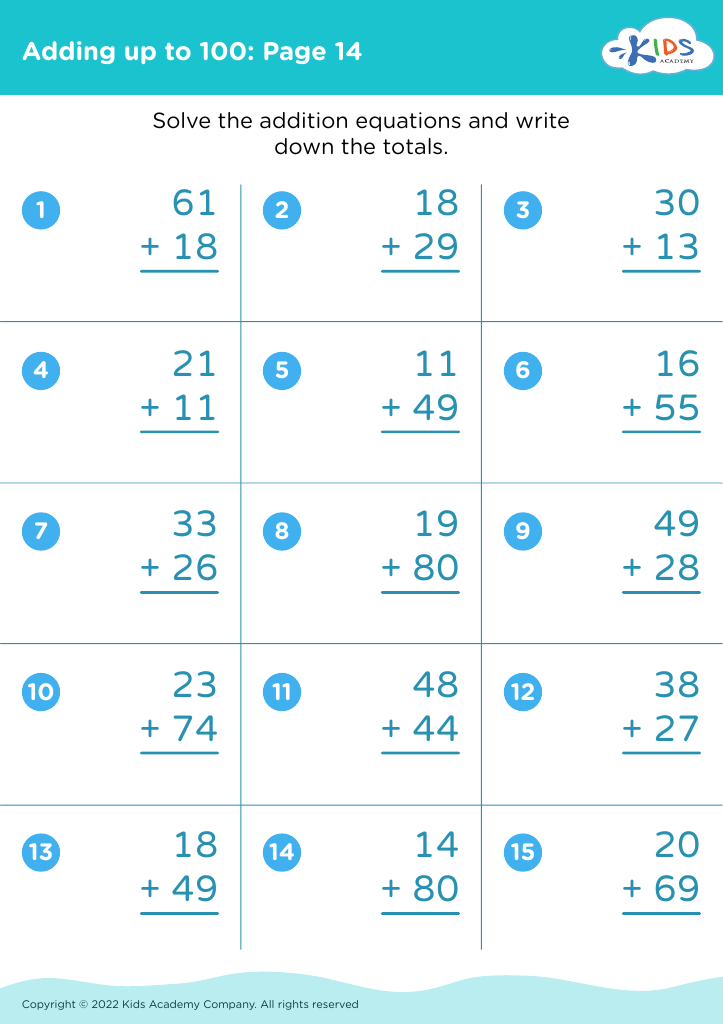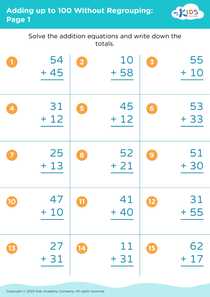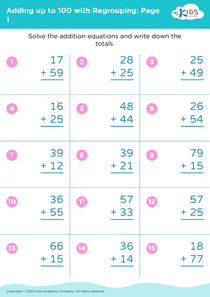Addition Practice Adding up to 100 Misc Worksheets for Ages 5-8
3 filtered results
-
From - To
Explore our comprehensive "Addition Practice: Adding Up to 100 Misc Worksheets" designed specifically for children ages 5-8! These engaging and colorful worksheets provide a fun way for young learners to master addition skills while building their confidence in mathematics. Our thoughtfully crafted exercises focus on adding numbers up to 100, allowing students to practice and improve their computation abilities at their own pace. Ideal for both classroom use and at-home learning, these worksheets offer a variety of problems to maintain interest and enhance understanding. Start your child's journey to math mastery today with our exciting addition practice resources!
Parents and teachers should prioritize addition practice for children ages 5-8, particularly with activities like "Addition Practice Adding up to 100 Misc," for several key reasons. First and foremost, mastering basic addition lays the foundation for all future math skills. At this young age, children are in a critical developmental stage where early math proficiency boosts their confidence and fosters a positive attitude towards learning.
Practicing addition up to 100 encourages not only numerical fluency but also promotes problem-solving skills and cognitive development. As children learn to add larger numbers, they also enhance their ability to think logically and sequentially. Furthermore, introducing various methods and fun activities can trigger children's interest and make learning enjoyable, stuck in routine practice often leads to disengagement.
Additionally, such skills are crucial for real-life applications, helping kids understand concepts such as budgeting, measuring, and time management. Teachers and parents can also assess a child's progress and tailor support and challenges accordingly. Encouraging consistent practice enables children to become independent learners, equipping them with the essential mathematical skills required for everyday situations, thus forming a robust foundation for lifelong learning in mathematics.

















